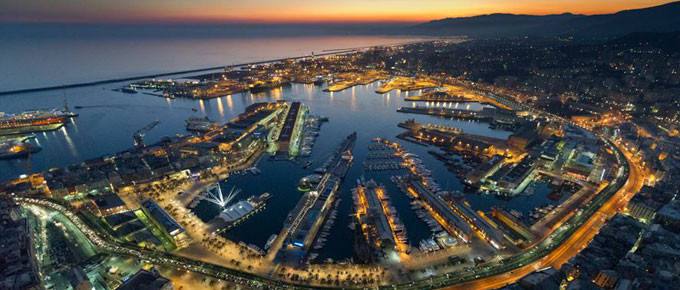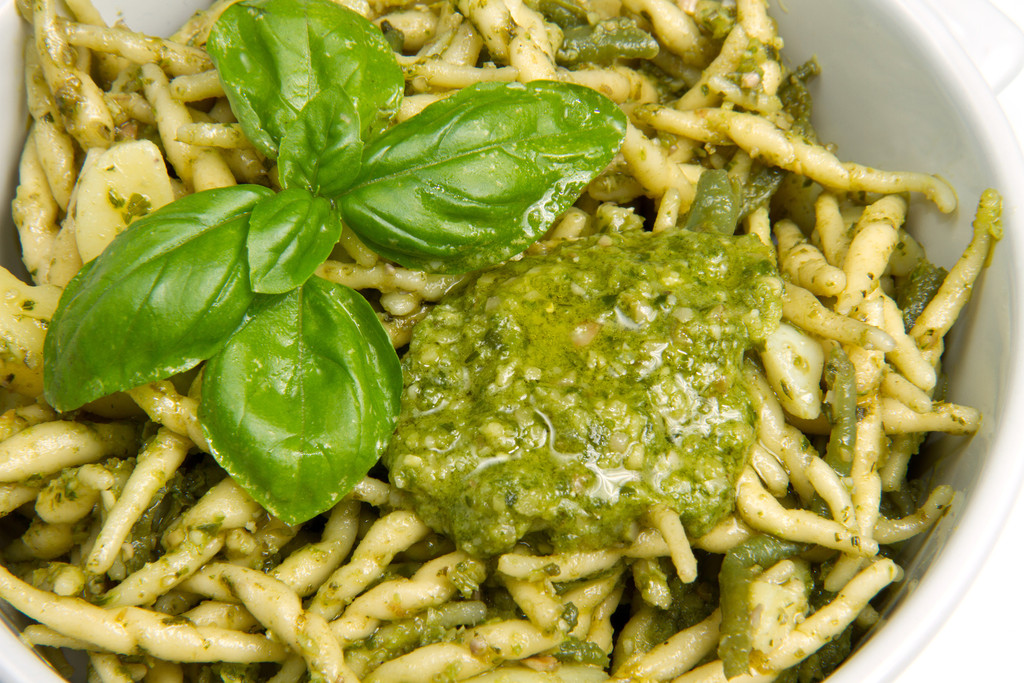Living in Genoa!

Why Genova?
I have always lived in a village not too far from Genoa. When I started university, I chose to remain in Genoa, mainly for the close-proximity to home. In fact, the first year I spent an hour on the train daily. In second year, I spent the whole academic year in Madrid, with an Erasmus project (take a look at the experience I published! ). This year, I decided to rent a house with exchange students, mainly for ease, for maintaining the language and for the independence that I had gained.

What is Genoa like?
Genoa is the capital of the Liguria region, it’s quite a big city, with around half a million inhabitants. Like in all of Liguria, the sea and the mountains are only a few kilometres away, with a very characteristic landscape. In fact, Genoa is very up and down, and it’s not very accessible by bike or by similar means.
The historic centre is considered one of the largest in Europe.
The city is quite busy and chaotic, but there are pedestrian areas (such as the narrow streets in the centre, or at the Old Port) where you can breathe in a bit of peace.
The palaces and buildings are often very ancient, and this makes them particularly majestic, obviously depending on the area of the city.

What is the student lifestyle like in Genoa?
We say that it’s not your typical city like Pavia or Bologna, but it still has a large student intake. There is the Erasmus association ESN GEG, which organises lots of events for, but not exclusively, exchange students. However, I believe the number of Erasmus students in Genoa to be around 150, the vast majority being of Spanish nationality. Of course, there are also Erasmus students who are English, French, Polish and so on.
Liguria is a region with an average age in Italy. Furthermore, the various offices of the University of Genoa are found all over the territory. For example, the humanities faculty is found in Principe, economics in the Old Port, sciences near to the San Martino Hospital. This affects the interaction between young people.
Unfortunately, the Genovese mentality is not always very open, but with a bit of determination I am sure you will succeed in making a group of friends here. Because, if you’re an Erasmus student you really shouldn’t be with people of your own nationality.
What is the university like?
We say that the facilities are often not up-to-date and the problems with organisation (even only to contact a professor or talk to somebody official) are on the daily agenda. All in all, my general opinion is quite positive, it’s a university without praise, or infamy.
There are various student cafeterias (5 euros a plate) and spaces to study.
For the next Erasmus students: from what I have seen, the professors are quite understanding with foreign students, and given that the majority of exams are oral (or maybe written and oral), you shouldn’t have too much difficulty passing them. Even with very high marks. Obviously, you have to attend a minimum amount of lessons to make yourself ‘noticed’, and talk to the professor to explain the situation.
How much does it cost to live in Genoa?
I think that, compared to the rest of Italy, it’s more or less average. It’s not an expensive city in regards to rent, but it could be for food and for transport.
Rent ranges from 180 euros up to 300 euros, for a decent single room. You then have to add the expenses for co-ownership, for water, electricity, gas, bins, internet etcetera.
On balance, rent and expenses can easily be found for less than 250 euros a month, living at least in four.
The bus passes are quite expensive, but I don’t know a single Erasmus that uses them! The train provides an economical way to travel (more so than in Spain or England) if you buy your ticket a little in advance (see Trenitalia’s Super Economy offers).
Entertainment and evenings can be quite expensive, but with the ESN card (which costs 10 euros and lasts for a year) you have a lot of discounts!
Lastly, I can tell you that you can get by with 600-700 euros a month, obviously depending on the lifestyle that you want to have.
Is it easy to find accommodation?
Since there is always a turnover of students, it’s quite easy. You have to look online or on specific Facebook groups. Doing it yourself is better because you don’t have to pay commission to an agency (often one month’s rent).
Look for a house that is reasonably close to the university, and at the same time not too far from the historic centre.
What is transport like in Genoa?
It does not have a large transport network. The most useful way to get around the city is by bus. You can also download an app on your phone (AMT Genova) where you can view timetables and lines and buy tickets (…not very popular apparently haha). At night (after midnight/ one o’clock) there is basically no public transport, so you have to either go by foot or by taxi, the latter being very expensive!
Genova also has a network… um an underground line, not very functional due to its limited size.
The trains, however, are very useful for visiting the towns near the capital.
What is the food like?
They eat well in all of Italy, and Genoa is no exception! Among other things, the favourite typical dishes are pesto and focaccia. Focaccia is a great breakfast or snack, cheap and easy to eat, you can find it in every bakery and it is always a little different. It’s up to you to find which on you like best.
There are many well-priced restaurants, pizzerias with a wood-burning oven and sushi buffets. Furthermore, in the historic centre you will find shops that stay open all night!

What’s the nightlife like in Genoa?
It’s certainly not the biggest party city in Italy, and is not even remotely comparable to Spanish ‘fiestas’. During the week, on days like Wednesday (a typical Erasmus evening) and Thursday (less so), people will gather around Vicoli, in the historic centre, an intricate network of narrow, characteristic streets. Typical bars for Erasmus are Moretti and Due Colpi, where you can find cocktails for only 3 euros. During the summer, you can also move toward the waterfront (Lungomare, Corso Italia), where many locals open as well as the Old Port (where there will be a typical Erasmus club, the Banano Tsunami).
From Wednesday to Saturday you can also go to dance (sometimes you will also find some empty spaces, depending a bit on the evening).
I am thinking of going for a night drive in Genova as well, however some other names of clubs are Makò (Friday), Casa Mia (university nights on Thursdays), Banano (summer Erasmus night on Wednesdays), Estoril, Dream, Tao, Time, 261, 262, the ElectroSwing night at Seven, and several others.
On a positive note, it merits the large number of events and concerts when the warm seasons arrives, or in various social centres or in the Old Port, both at a good price.
LAST WEEKS UPDATE (May 2016): an order was issued by the mayor of Genoa which obligates bars to close at one o’clock during the week, and at two o’clock during the weekend, plus convenience stores that sell alcohol must close by nine o’clock.
This is bad news that undermines what little life there was in Genoa, putting traders’ businesses at risk. We hope that it will change! In this case, I will change the experience.

What good sites are there to visit in Genoa?
Piazza della Vittoria, Piazza de Ferrari, Via XX Settembre, the Old Port, Boccadasse, the Aquarium (second in Europe, after the one in Valencia) Genoa Cathedral, the Monumental Cemetery of Staglieno, the house where Christopher Columbus grew up, the exhibition at Doge’s Palace, all the beautiful views that can be seen in the streets and much more…!

What advice would you give future students/ Erasmus heading to Genoa?
Let’s say that if I could choose another city, I wouldn’t go to Genoa. Although, it’s still a great option due to the beaches (you have to travel a little to find the lovely beaches), the climate (humid and windy, but mild due to the effect of the sea), its tactical position. Thanks to its location, you can easily visit all of Northern Italy, nearby towns (every one with their own story, Cinque Terre, Portofino, Camogli etcetera…), you can go to ski in a few hours by car and visit countries such as France and Switzerland.
Anyway, I am sure that you will enjoy yourself and have a great experience.
New information about Genova soon.
I want to leave you, as usual, with a quote from the great singer-songwriter Fabrizio De Andrè:
“Genoa, for me, is like a mother. It’s where I learned to live. She gave birth to me and raised me to thirty-five years of age: and it’s not little, on the contrary, it’s perhaps almost everything. Today it seems to me that Genoa has the face of all the poor devils I met in the alleyways, the excluded that I would later find in Sardinia, the delicacies in Via del Campo. The flowers that bloom from manure, the godless for whom God does not have a small, well-protected slum. In His paradise, he is always ready to welcome them. ” (F. de Andrè)
Goodbye all!
Photo gallery
Content available in other languages
- Italiano: Vivere a Genova!
- Español: Vivir en Genova!
- Français: Vivre à Gênes !
Share your Erasmus Experience in Genoa!
If you know Genoa as native, traveler or as exchange student... share your opinion on Genoa! Rate different characteristics and share your experience.
Add experience →





















Comments (0 comments)